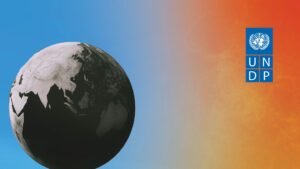Turning Polycrisis into Polytunity

Writing in her role as Senior Advisor to the UNDP, SNF Agora faculty Yuen Yuen Ang reframes the polycrisis as polytunity—“a promising moment to question the industrial-colonial paradigm of the past and to find an alternative fit for our changing realities.” Prior to releasing this UNDP report in June 2025, Ang introduced polytunity at the UNDP Global Leadership Retreat in November 2024, on a keynote panel alongside Achim Steiner (then UNDP’s Chief Administrator) and Bosun Tijani (Minister of Communications, Innovation & Digital Economy, Nigeria).
Highlights
- From polycrisis to polytunity: Disruptions are not paralyzing, Ang emphasizes, if we see them as a polytunity for “deep thinking and systems change.”
- AIM Political Economy: But actualizing polytunity requires more than just criticisms of the “polycrisis” meme—it demands alternatives. Ang offers one concrete alternative: AIM (Adaptive, Inclusive, Moral) Political Economy—a holistic, new way of thinking that sees societies as systems rather than machines (Adaptive), amplifies indigenous solutions (Inclusive), and corrects normative biases in mainstream thinking (Moral).
- Demonstrated AIM in earlier books: Ang’s books exemplify AIM in practice. How China Escaped the Poverty Trap (2016) shows development as a non-linear process beginning with “using what you have.” China’s Gilded Age (2020) unbundles corruption into different types, challenging the myth that corruption afflicts only poor countries.
“ How can we turn polycrisis into polytunity? We cannot stop at complaining. I introduce an alternative paradigm: AIM (adaptive, inclusive, moral) political economy. ”

